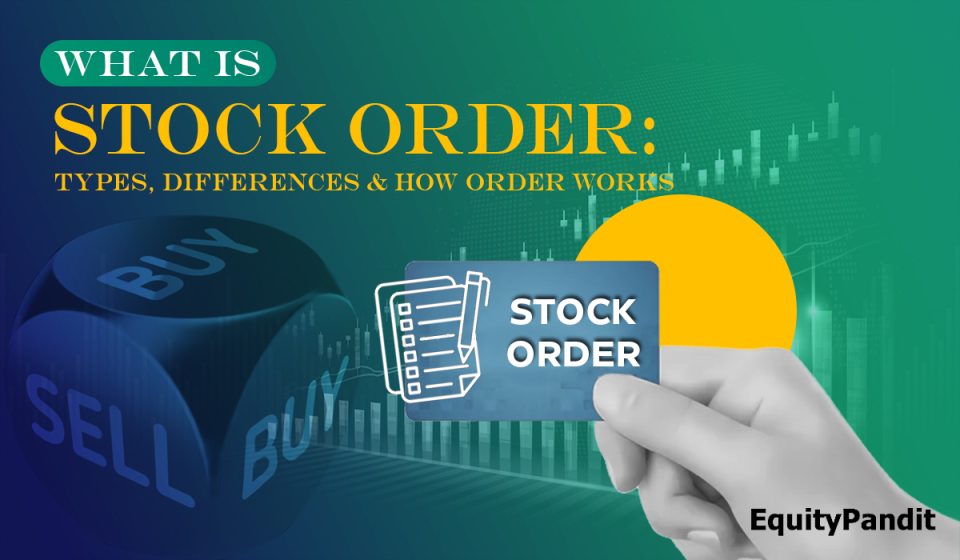Introduction
An order is a request made to a broker or trading platform to buy or sell a security for an investor. It is the basic building block of trading in the securities market. Orders can be placed via phone, online platforms, or automated systems and go through an execution process to complete the trade.
Basics of Orders
Investors place orders through brokers to buy or sell assets, specifying how to proceed. These orders are key to trading in the stock market.
Trades occur in the bid/ask process. The bid is the maximum price a buyer offers, and the ask is the minimum price a seller will accept.
Bid/ask prices are constantly shifting as orders get placed and filled, which determines whether, when, and at what price a trade occurs.
Two main order types in the stock market are market orders and limit orders, offering different ways to buy or sell shares.
Understanding Market Order
A market order lets investors buy or sell shares based on live market prices, mentioning only the quantity.
A market order specifies quantity but not price; all trades are executed at live market prices after matching buy and sell orders at the exchange.
There is a small probability of price variation between the order being placed and its execution as a result of moving markets; execution price may not be the same as the placed price.
What is Limit Order?
On a limit order, both the quantity and the desired price for purchase or sale should be specified so that orders are executed only at that price.
Suppose you have placed a limit order for buying 10 shares of Reliance at Rs 2,000; if the stock trades at Rs 2,160, the order will only get executed once it reaches Rs 2,000.
Now, since a limit order can be cancelled, if the desired price doesn’t come in that particular trading session, all the better for you. However, it won’t guarantee success in execution either.
Orders are executed in the order they reach the exchange, but a transaction won’t occur if no matching sell or buy orders exist at the set price.
What is a Stop-Loss Order?
A stop-loss order is a risk mitigation tool that changes an order to market on the occurrence of a stock’s price reaching a certain level, selling the shares at the first offered price.
For example, placing a stop-loss on a stock worth Rs 50 at Rs 45 implies that if the stock in question declines to Rs 45, such a loss will be realised thus protecting the trader from any more losses.
Loss-cutting orders are primarily used for securing profits or minimising risks in cases of rapid market fluctuations or when continuous market watching is not possible.
Still, they provide no assurance that the order will be filled at the desired stop loss price, as there are times when the fluctuating market will fill at a price lower than the stop loss trigger.
Bottomline
An order is an instruction to a broker to buy or sell an asset, allowing investors to specify the price, timing, and conditions for the trade.
Traders use different order types based on market predictions, desired profits, and risk management, often placing multiple orders to balance gains and losses.
Frequently Asked Questions (FAQs)
Which Stock Order is Better: Market Order or Limit Order?
Market orders are best for quick execution at the current price, while limit orders give more control over the price but may not be executed if the market doesn’t reach your desired price.
What is the Importance of a Stop-Loss Order?
A stop-loss order helps protect you from large losses by automatically selling your stock when it reaches a specific price, though it doesn’t guarantee the exact price.
How Does a Limit Order Work?
A limit order lets you set a price at which you want to buy or sell, but it’s only executed when the market reaches that price.
Can I Cancel a Limit Order?
Yes, you can cancel a limit order if it’s not filled, but it may not be executed if market conditions don’t meet your price.
Unlock profitable opportunities every day! Unicorn Signals provides actionable intraday trading signals for stocks and futures. Don’t miss out – download Unicorn Signals and start winning now!
 Live
Live

